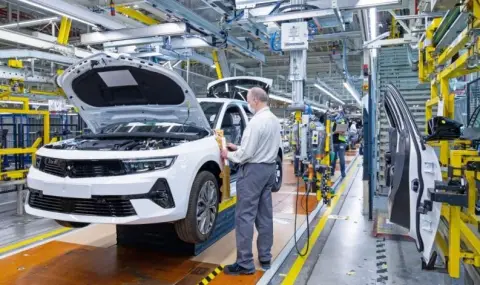The crisis in the Stellantis corporation continues to gain momentum. Due to unification, many models of its subsidiary brands are increasingly failing to meet management's hopes and are losing out to competitors. One of these models is the sixth generation Opel Astra (also known as Astra L). The model, which was Opel's bestseller years ago, is now based on the French modular EMP2 platform.
For the first ten months of the current year, Opel Astra sales in Europe, according to JATO Dynamics, amounted to 70,761 units, which is a significant increase compared to the results for the same period last year, but insufficient for management's hopes. The Rüsselsheim plant was hoping for significantly better statistics and, based on these forecasts, produced too many cars and clogged the warehouses with them, so now it is time to temporarily stop production of the Astra.
The Rüsselsheim plant is closed this week and next, and will then switch to reduced operation and will operate like this until at least the end of January. A two-week break is also planned during Christmas and New Year.
One of the Astra L's shortcomings is the weak engine range: last year the diesel engine disappeared from the model range, and the basic versions are equipped with a 1.2-liter turbocharged gasoline engine. Plug-in hybrids based on a 1.6-liter turbocharged gasoline engine are also available, but they are too expensive. There is also an all-electric Astra, but few people are interested in it.
As a reminder, the Stellantis corporation has just forced its CEO, Carlos Tavares, to resign, more than a year before his contract expires. A successor has not yet been appointed, and the automotive giant, which owns fourteen brands, is facing increasing problems.
